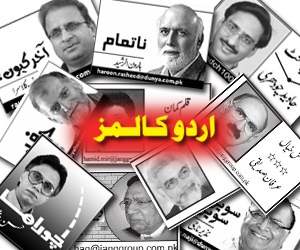With Mandate From India’s Voters, Modi Promises Improved Economy Again - Read Now
Posted By: Kabir on 20-06-2019 | 18:54:35Category: Political Videos, NewsNEW DELHI — On Thursday, India’s newly re-elected prime minister, Narendra Modi, unveiled his priorities for his second term — and fixing the weakening economy was at the top of the list.
After a campaign that focused on Hindu nationalism and national security, the Modi government adopted a more inclusive tone, saying that it had been re-elected to continue the country’s economic development and improve the lives of all 1.3 billion Indians.
“Empowering every person in the country is the main goal of my government,” said Ram Nath Kovind, India’s largely ceremonial president, in a speech to Parliament. The president is charged with conveying the administration’s agenda at the beginning of each new Parliament session.
To the nation’s hard-hit farmers, the government promised about $359 billion in aid — a sum roughly equivalent to the country’s annual budget — over an unspecified period. Small traders and shopkeepers, it said, will get new government pensions, and small businesses of all sorts will get government loans to help them grow.
For poor women, a crucial constituency that voted heavily for Mr. Modi’s Bharatiya Janata Party, the government pledged priority access to 20 million new homes that it plans to build over the next three years.
“The voters have given him another chance, but this time he will have to get down to addressing these basic economic issues,” said Arati Jerath, a columnist and political analyst in New Delhi. “The big gorilla in the room is employment, creating jobs. It’s been incredible just the past few weeks, downsizing across the board.”
Yet Mr. Modi’s economic agenda was notable for what it left out. The government offered more seats in schools to young people, but offered no substantive plan for finding employment for the hundreds of thousands of them who enter the job market every month.
India’s unemployment rate was 6.1 percent last year, the highest in 45 years, according to data the Modi administration suppressed until after the election. That went along with sluggish growth in gross domestic product, which slipped to a five-year low of 6.8 percent in 2018-19.
Mr. Kovind repeated Mr. Modi’s goal of nearly doubling the size of India’s economy to $5 trillion by 2024 — a wildly unrealistic target that would require India to increase its annual growth rate to an average of 14 percent over the next five years.
But reforms sought by the business sector, including an overhaul of government-owned banks and changes to the law to make it easier for factories to acquire large tracts of land, went unaddressed.
Mr. Modi at an April rally in Varanasi, India. During his campaign, Mr. Modi struck a populist tone.
Credit
Rajesh Kumar Singh/Associated Press
Image
Mr. Modi at an April rally in Varanasi, India. During his campaign, Mr. Modi struck a populist tone.
Mr. Modi swept into power in 2014 at least in part on promises to create millions of new jobs and to make India an economic powerhouse to rival China. But with unemployment already at historic highs well into his first term, this year’s election campaign focused on national security, with B.J.P. members casting themselves as “watchmen” against terrorists and neighboring nations like Pakistan.
The B.J.P. also vowed in its second term to pass a Hindu nationalist agenda, including abandoning India’s official secularism and making Hinduism, the religion practiced by about 80 percent of the population, the guiding ideology of the government.
On Thursday, the Modi government made clear that it intended to follow through on one important part of that promise: expelling illegal immigrants who are Muslim, mainly from Bangladesh, and granting Indian citizenship to illegal immigrants who are of other faiths.
“Illegal infiltrators pose a major threat to our internal security,” Mr. Kovind said.
To weed them out, the government said, it will set up a process for creating a National Register of Citizens in border states such as West Bengal, requiring all residents to prove their right to be in India. A similar process already underway in Assam State has been controversial, with longtime residents being placed in detention camps.
The Modi government will also reintroduce so-called triple talaq legislation, which would outlaw traditional Muslim divorces — in which a husband can divorce his wife by repeating the word talaq, or divorce, three times.
Such divorces were already declared illegal by the Supreme Court in 2017, and some critics view the follow-up legislation as an unnecessary attack on Muslim families; others see it as an attempt to curry favor with Muslim women.
During the campaign, Mr. Modi struck a populist tone, emphasizing achievements such as the building of tens of millions of toilets for people who previously had to visit fields to relieve themselves — never mind that many of the new facilities went unused. Similarly, he announced a vast new public health care program for the poor, nicknamed Modicare, but has yet to adequately fund it.
Ms. Jerath, the analyst, said that the B.J.P. had avoided economic issues during the election because its record had been so poor.
“These were not issues they wanted to bring up,” she said. “Nationalism and security were easy to use to divert attention from bread-and-butter issues. The great failure of the opposition was they completely failed to make these issues the center of their campaign. But now the government cannot avoid them.”
The striking thing about the election results, according to Gilles Verniers, an assistant professor of political science at Ashoka University, near New Delhi, is that the B.J.P. did particularly well in areas that were pummeled by the economic crisis.
“We’re in a bit of a curious situation here, a month after a verdict largely analyzed as being disconnected from economic issues, which does not make sense,” Mr. Verniers said. “Still, the B.J.P. knows that if it doesn’t address the long-term economic issues, it’s going to hit a wall.”

 BBB... Big Badi Breaking News For Jaahil Awaam... Petrol Price
BBB... Big Badi Breaking News For Jaahil Awaam... Petrol Price
 Maulana Bhi Datt Gaye... Breaking Big News
Maulana Bhi Datt Gaye... Breaking Big News
 Afghanistan Iran Decides To Border Seal
Afghanistan Iran Decides To Border Seal
 Big Breaking News... Musafir Bus Ko Haadsa
Big Breaking News... Musafir Bus Ko Haadsa









